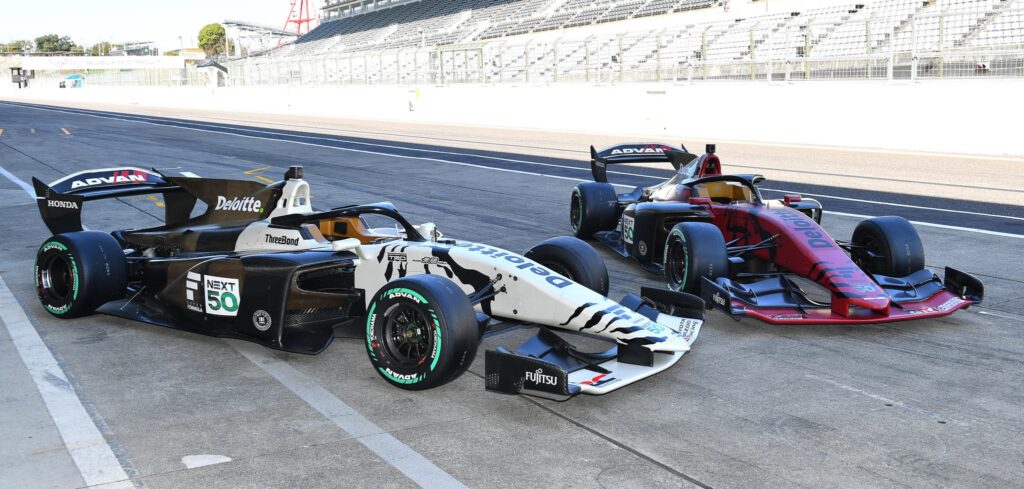As part of Super Formula’s Next 50 plan, the Japanese single seater race series has confirmed a collaboration with Swiss lightweighting specialists Bcomp. Having tested the company’s flax fiber composite parts during 2022, Super Formula will now use the bodywork components on the new SF23 chassis.
Super Formula’s Next 50 plan outlines several significant steps to target carbon neutrality within the race series by new tire compounds that use recycled rubber and natural compounding agents, in addition to using more sustainable materials for race car construction.
Due to damage or upgrade, carbon fiber bodywork is responsible for producing a substantial carbon footprint within the motorsport sector. To combat this, Bcomp’s ampliTex and powerRibs composite technologies are produced using flax fiber to deliver a sustainable solution. To date, the environmentally friendly components have been used within Formula 1, Formula E, Extreme E and the DTM.
Benefitting from a low density and good mechanical properties, flax fibres are much more sustainable than conventional alternatives such as carbon fiber when producing or developing high-performance composites. The combination of Bcomp’s ampliTex flax fabrics and the patented powerRibs reinforcement grid enable the natural fiber composite to match the low weight and high stiffness of carbon fiber, but in a more sustainable way.
A previous analysis of Bcomp’s natural fiber composites showed a reduction of 90% in material CO2 emissions compared to traditional carbon fiber parts. Additionally, a more than 80% reduction of CO2 emissions from cradle-to-gate was also made possible.
The use of the flax fiber composites within the SF23 bodywork also improves safety levels for drivers during crashes due to the absence of sharp edges and debris. Furthermore, the flax fiber-based composites are recycled when components reach the end of their useful life, meaning parts no longer end up in landfill when upgrades are necessary or when damage occurs.
During 2022, rigorous testing of Bcomp’s bodywork was carried out, with sidepods and engine covers being made entirely from ampliTex and powerRibs. Initially, the components performed well, but the duo agreed to create hybrid parts made of 70% flax fiber and 30% carbon fiber for implementation in the SF23. The combination of materials resulted in local reinforcements for components while greatly reducing the carbon footprint.
“Super Formula is considered the second fastest racing series in the world and proves that sustainable technologies are ready to compete at the very highest performance level,” said
Johann Wacht, manager, motorsports and supercars, Bcomp. “The series impressively shows to the industry what is possible, and we are very much looking forward to a great season full of entertainment and sustainable innovations!”




